Writer Shannon Severson // Photography by Loralei Lazurek



Arizona Parker has spent much of her life in the saddle. She’s competed in a variety of disciplines since the age of 8 and was a member of the University of Arizona’s equestrian team, placing top ten in the nation in her division at the Intercollegiate Horse Show Association’s National Competition in 2019 and serving as president of the team during her senior year.
However, Parker is not one to pull the ladder up behind her.
As a leader and longtime member of the 230,000-member American Quarter Horse Association, Parker has made it her mission to empower young adults and youth members to get involved in the equine industry, develop their knowledge and gain hands-on leadership skills.
“It’s very rewarding,” Parker says. “As a former youth member, the experiences and leadership skills I gained have made a significant and positive impact on nearly all aspects of my life. In 2021, I joined AQHA’s youth activities committee to ensure that other youth members continue to benefit from similar opportunities.
“The work we do is really to shape pathways for young horse enthusiasts of all backgrounds to reach their full potential through engaging competitions, education, scholarships and leadership programs. We want kids to get involved and feel included, no matter what background they come from.”
This year, Parker not only attended AQHA conventions but also served as an interviewer and judge for youth scholarships at the state organization’s fall championship show and was elected chair of its youth activities committee and a member of its board of directors.
Parker also became one of 10 grant recipients for the AQHLead program, which supports young adults’ leadership development in the equine industry. She will use the grant to visit major industry events and places of interest and partner with a mentor from the quarter horse industry to further develop her knowledge and leadership skills.
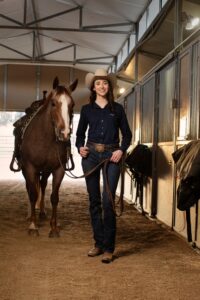


No Horse? No Problem!
Having lived all over the state with her family since the age of 5, the 27-year-old Cave Creek resident says this is the town she’s enjoyed most — particularly because it’s maintained its Western heritage and equine-centricity.
“The horse culture is well-preserved in Cave Creek,” says Parker, who has been traveling for competitions since she was about 8 years old. “[However,] it’s a common misperception that you have to own a horse or compete in order to be involved in the American Quarter Horse Association. That’s simply not true. All you need is a love of horses.
“Obviously, horses are expensive; a lot of kids love horses and can’t afford them or their parents don’t know how to get them involved, but you don’t need to own a horse or even compete to benefit. It’s not a requirement for the state or national associations.”
Parker’s own brother became a regional director in his youth but had never shown or competed before. He saw his sister reaping the benefits of friends and opportunities and he went on to become a leader at the national level.
Lest anyone think that paths to involvement are only for the young, Parker says that horse enthusiasts of all ages can become members and participate in the equine community.
“Someone could fall in love with horses in their 20s, 30s, 50s or beyond and there are still ways for them to be involved through the American Quarter Horse Association,” Parker explains.
In fact, her own story is one of finding a path back to being involved in the industry after she graduated from college.
“My career doesn’t involve horses, but I wanted to stay connected,” Parker says. “Serving on these boards and committees has made me feel like horses are still a main part of my life and not a side hobby.
“The young adult subcommittee was created about a year ago. We realized a lot of young adults between the ages of 18 and 35 struggle to maintain the same level of activity they did as kids. Various commitments, from advancing careers to pursuing education and raising families, can become a barrier; horses are expensive. We are finding ways to keep young adults involved even if they have busy lives or can no longer afford to own a horse.
“My message is that everyone is welcome.”
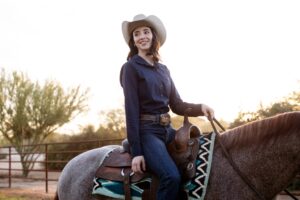


Leading Opportunities
There are numerous opportunities at the state and national levels outside of riding and showing; horse rescues need help with cleaning stalls and feeding and grooming the animals and the local show circuits are often in need of volunteer event staff to open gates, hold horses and distribute ribbons to winners.
Beyond horse-related activities, Parker says that there are significant leadership opportunities for members and that she directly benefited from her own participation.
“As a shy youth member, I was encouraged by former youth advisor Connie Hay to get involved with our state’s youth board,” Parker recalls. “My first leadership position was as a 14–18 representative, where I slowly developed my confidence and discovered a passion for servant leadership.”
Parker continued through her teen years, holding a variety of Arizona Quarter Horse Youth Association board member positions, including vice president and president. She eventually served as a 2014–2015 regional director. As she works to bring more young people to the youth board, she hopes to draw more participants from under-represented areas in northern and southern Arizona.
“I recommend kids get started at the local level,” Parker says. “It’s a great way to meet friends in the area and learn foundational leadership skills. If young people want to take their leadership experience to the next level, this is where the American Quarter Horse Association really shines. They can run for positions with the AQHYA Leadership Team and become a national officer or director overseeing several states. That’s how I started.”
Each summer, the American Quarter Horse Youth Association holds a three-day conference, the Youth Excellence Seminar, near its headquarters in Amarillo, Texas. Young attendees meet new friends from all over the country and hear from leaders in the equine industry. Those who wish to run for office learn public speaking skills as well as how to campaign, create a pitch and utilize networking opportunities.
National officers and directors often get the opportunity to travel to Capitol Hill to work with policymakers, advocate for the equine industry and meet top leaders in the field. These kinds of experiences prepare them and lend them a competitive edge in the job market, laying a strong foundation for success in any career upon which they set their sights.
“Another benefit is scholarship opportunities,” Parker emphasizes. “Youth who get involved at the state and national levels gain access to numerous scholarships. This investment really pays off in the long run, not only by providing a meaningful experience for the youth, but by assisting with college expenses, which is especially advantageous for parents.”
It’s also affordable. Youth membership at the state level costs as little as $10 and the national level costs just $25 per year, opening up access to a thorough online learning platform. Parker hopes this low-cost investment and the work that she and the association are doing to increase awareness will bring many more horse enthusiasts into the fold.
Ultimately, it’s about sharing the many significant physical, emotional and social benefits that horses have brought to her and so many others.
“I feel like every aspect of who I am now is because of horses,” Parker says. “For young and old, for veterans and people with disabilities, horses are wonderful to have in someone’s life.”

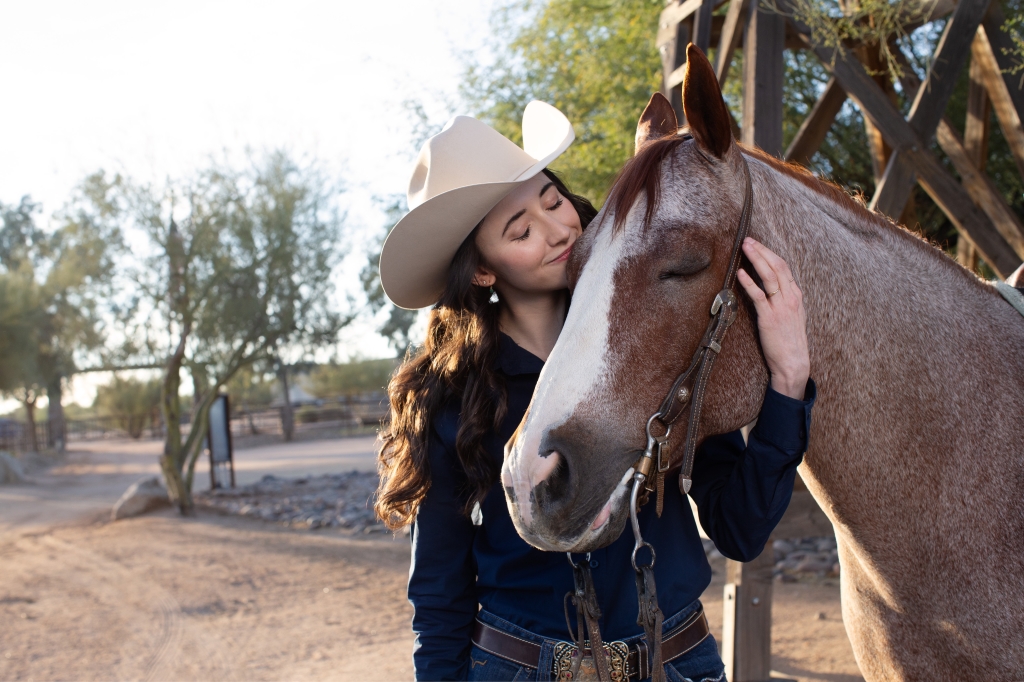


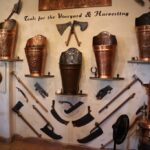
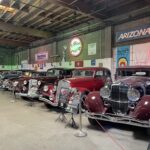
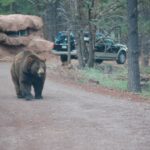
Comments by Admin